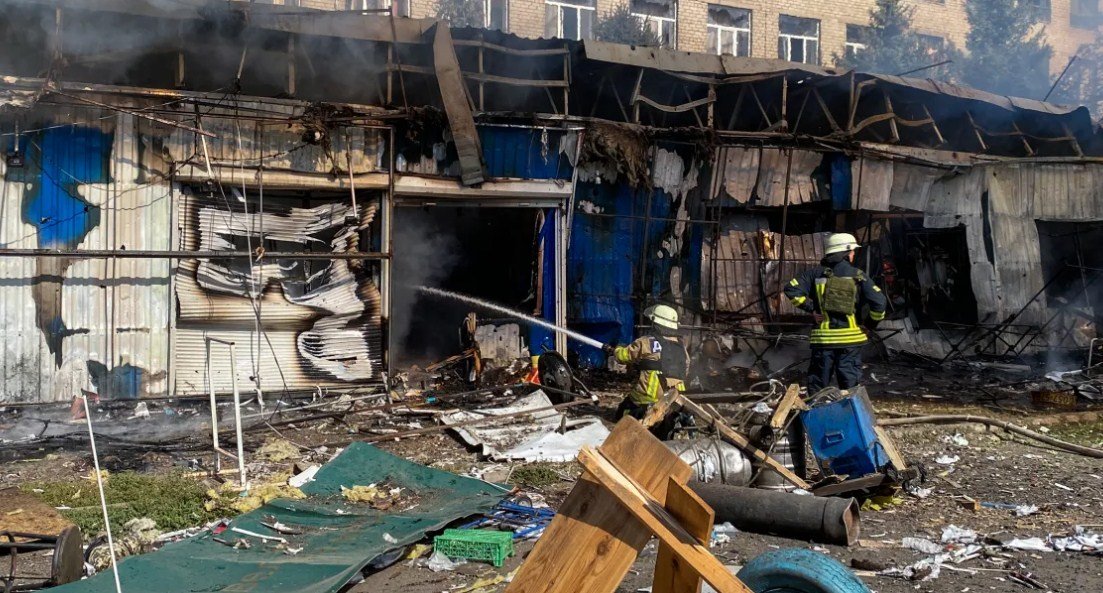Kyiv International Economic Forum
The Kyiv International Economic Forum, one of Eastern Europe’s largest international forums, took place in Kyiv on Oct. 12. The forum brought together representatives of business, government, and society to discuss key economic issues and global trends. The Kyiv Independent covered the event as a media partner.
The forum focused on the topics of digital transformation, green economy, innovation, and human capital development. Among the speakers were Ukrainian President Volodymyr Zelensky, Prime Minister Denys Shmyhal, Minister of Digital Transformation Mykhailo Fedorov, and Minister of Economy Oleksiy Liubchenko.
Zelensky announced that Ukraine will launch a digital platform for public services called Diia 2.0 by the end of the year. He also said that Ukraine aims to become a leader in green energy and reduce its greenhouse gas emissions by 65% by 2030.
Shmyhal presented the government’s economic strategy for 2030, which includes increasing GDP per capita to $15,000, creating 5 million new jobs, and improving the business climate. He also said that Ukraine expects to receive the second tranche of the IMF loan worth $700 million by the end of October.
Fedorov showcased the achievements of the Ministry of Digital Transformation, such as launching the Diia app, issuing digital passports and certificates, and creating a digital sandbox for fintech startups. He also announced that Ukraine will introduce a digital currency called e-hryvnia by 2024.
Liubchenko spoke about the challenges and opportunities for Ukraine’s economy in the post-pandemic recovery. He said that Ukraine needs to diversify its export markets, attract more foreign direct investment, and increase its competitiveness in the global value chains.
International Donor Conference on Humanitarian Demining in Ukraine
Participants of the International Donor Conference on Humanitarian Demining in Ukraine pledged almost 500 million euros ($530 million) to Kyiv in demining assistance, the Croatian news agency HINA reported on Oct. 11, citing Croatia’s Interior Minister Davor Bozinovic.
The conference was co-organized by Croatia and Ukraine and attended by representatives of 40 countries and international organizations. The main goal was to raise funds and awareness for the humanitarian demining efforts in Ukraine, where more than 7 million people are affected by landmines and unexploded ordnance.
Bozinovic said that Croatia, as a country that successfully cleared its territory from landmines after the war in the 1990s, is ready to share its experience and expertise with Ukraine. He also said that Croatia will donate 1 million euros ($1.06 million) to Ukraine for demining purposes.
Ukrainian Deputy Prime Minister Oleksiy Reznikov thanked the donors for their support and said that Ukraine needs more than 1 billion euros ($1.06 billion) to clear its land from mines. He also said that Ukraine is committed to fulfilling its obligations under the Ottawa Convention on banning anti-personnel mines.
Russian Attacks on Ukrainian Ports and Infrastructure
A Russian missile attack on Oct. 7 damaged port facilities and grain silos in Chornomorsk, the site of one of Ukraine’s Black Sea ports. The strike also hit a residential area, injuring at least four people. Overnight on Oct. 10, Russia also launched a total of 36 kamikaze drones in Ukraine’s south.
The attacks were part of Russia’s ongoing hybrid war against Ukraine, which started in 2014 with the illegal annexation of Crimea and the support for separatist forces in Donbas. Russia has also been blocking Ukrainian ships from accessing the Sea of Azov and imposing economic sanctions on Ukrainian goods.
The Ukrainian government condemned the attacks as acts of aggression and terrorism and called on the international community to increase pressure on Russia to stop its violations of international law and human rights. The Ukrainian military said that it has strengthened its air defense systems and is ready to repel any further attacks.
The Ukrainian ports are vital for the country’s economy, as they handle about 70% of its exports and imports. The main commodities shipped through the ports are grain, metal, coal, oil, and fertilizers. According to the State Statistics Service, Ukraine exported 56.7 million tons of grain worth $10.9 billion in 2022.

